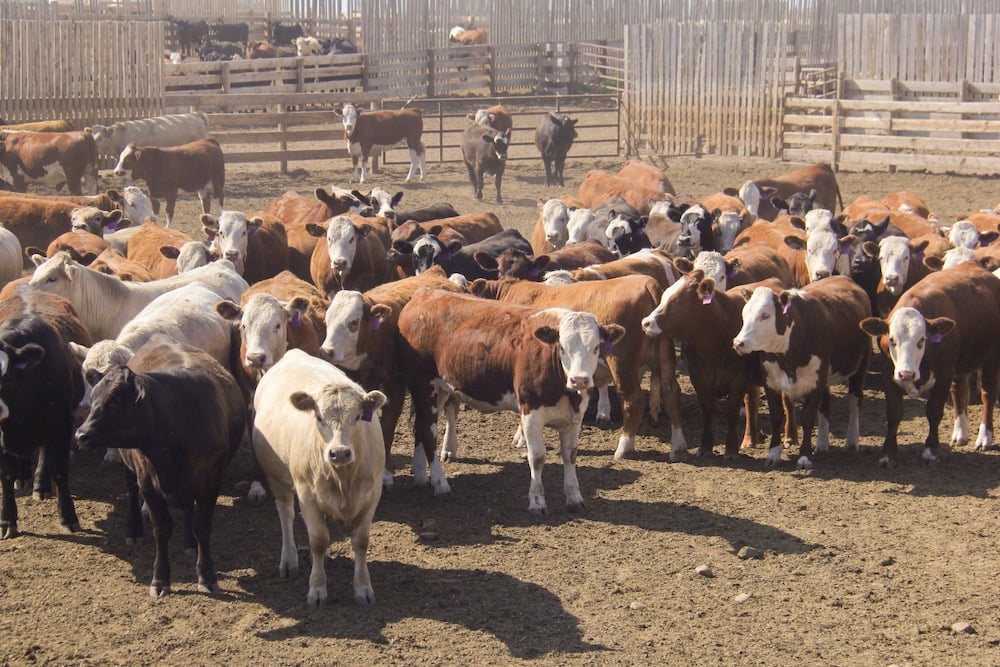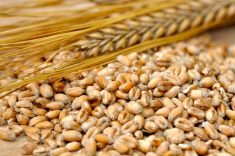Glacier FarmMedia | MarketsFarm – Even before tariffs were imposed by United States President Donald Trump on March 4, the levies were having an impact on Western Canadian feed grain prices, said Jay Janzen of CorNine Commodities in Lacombe, Alta.
“The main issue we’re dealing with is the tariffs (have been) off and on again,” Janzen stated. “If they could just pick a lane, it would be a lot easier to deal with.”
Trump initially stated he would slap a 25 per cent tariff on most goods the U.S. imports from Canada and Mexico on Jan. 20, the day he was sworn in. However, following a series of negotiations, the date was pushed back into February and eventually to March 4.
Read Also

U.S. livestock: Feeder cattle rise to new highs on tight supply, strong cash prices
Chicago | Reuters – Chicago Mercantile Exchange feeder cattle futures rallied on Thursday to a record high on strong cash…
Farmers, feedlots become timid
Janzen said that led to a selloff in the futures market, especially over the last two weeks, which altered attitudes on the Canadian Prairies.
“Overall, I would say everyone is acting a little bit more timid, both the farmer and the feedlot sides of things,” he added. “We’ve definitely seen prices drop off.”
“Personally, I do think this is a bit of an overreaction right now and has to correct a little,” Janzen continued. “In the next week or two (prices) will grind around the values we’re seeing this week.”
Feed prices mixed
Prairie Ag Hotwire reported feed barley prices as of March 5 have been mixed over the last seven days. While those in Saskatchewan held steady at C$5.25 to C$5.60 per bushel delivered, those in Manitoba bumped up eight cents at C$5.02/bu. In Alberta, the prices lost seven cents at C$4.80 to C$6.64/bu.
As for feed wheat, the shifts either way have been a little more dramatic. Those in Saskatchewan lost 18 cents at C$7 to C$7.83/bu. delivered and in Manitoba they dropped 25 cents at C$5 to C$6.95. In Alberta feed wheat gained 30 cents at C$6.61 to C$8.95/bu.

















